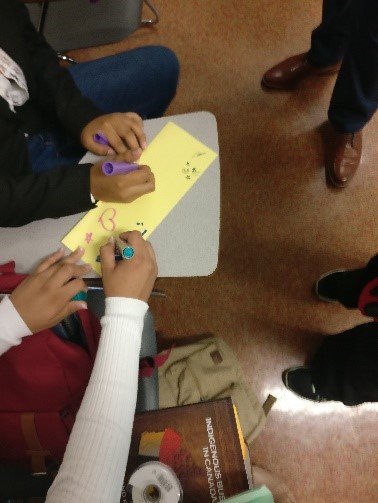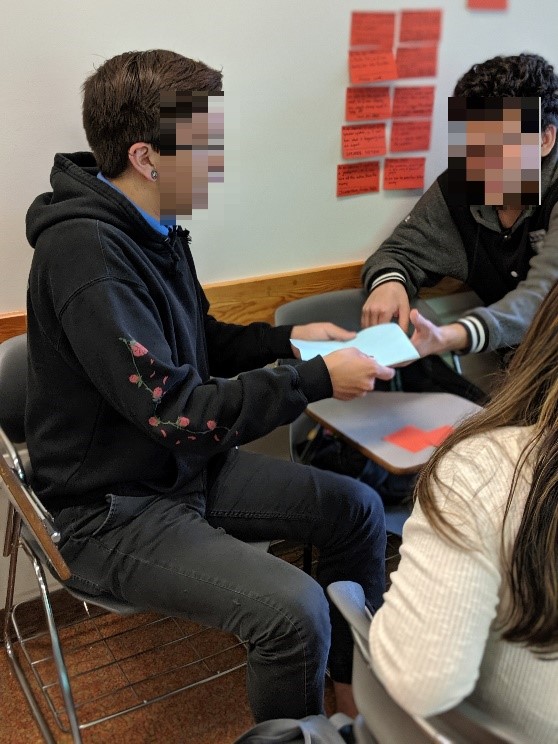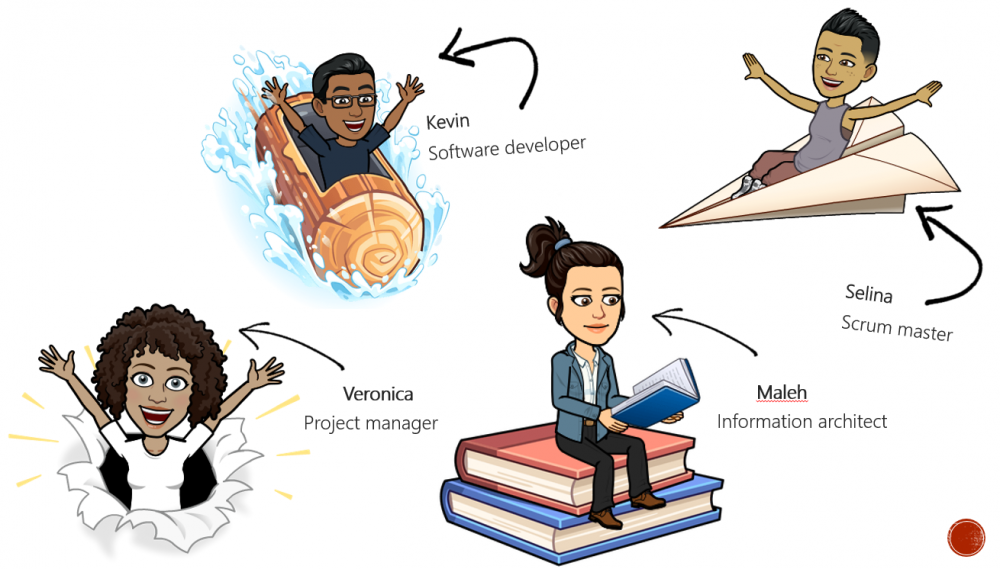As a member of the Systems Equity Committee and the VPFO Diversity and Reconciliation Committee, I have been fortunate to participate in some great initiatives with different folks in Systems and the VPFO that focus on diversity, inclusion and on the goals of the Indigenous plan. I am always on the lookout for ways to support projects like the Indigenous plan through my work, and opportunities to do so usually benefit from a concerted team effort.
Taking the leap!
In August, when I bumped in to Shane Hartman, a colleague I worked with a few years ago in Student Recruitment, he shared that he was running a post-secondary immersion program out of the Gustavson School of Business for Indigenous high school and recent high school grads. Students involved in the program participate in University credit courses across faculties and engage in Indigenous cultural initiatives to build a connection to campus and the post-secondary experience. Titled the Opening my World of Learning (OWL) program, Shane noted this was its first year and he wanted to make a positive impact in the lives of the participants. When he mentioned that he did not yet have a session or course around technology and innovation, I jumped at the opportunity to find a way to share the work that UVic Systems does with these students!
Many hands make quick work
In a few short days, with Ivan and Wency’s support, I had teamed up with some of the experts from UVON to provide a workshop to these students on the Agile methodology, which is used by different groups across the department. The hour-long session that Selina McGinnis and Maleh Froese developed, supported by me and delivered with Kevin Gill, provided an opportunity for these students to learn about Agile through experiential learning.
Agile through paper airplanes
During the session, the students self-organized and collaborated with one another to meet the requirements provided by their product owners (Kevin, Maleh, Selina and me). They built paper airplanes from requirements written on post-its and collected verbal feedback from their product owners to inform each successive development cycle. Following these steps through three cycles, the students took iterative development principles from theory in to practice.

Exposure to software development at the right time
Though Agile practices are used by professionals around the world to solve complex problems, the students were quick to pick up the exercise and run with it. Kevin noted that he “was lucky enough to have been exposed to software development in [his] early teen years, but not everyone has that opportunity,” so this learning experience was timely for the group. The fresh perspectives of these eager learners allowed them to approach the exercise with creativity and resilience. Kevin went on to say “[t]he experience itself was highly engaging for the learners and at the end of it [he thought] everyone learned a little bit about how the agile approach works and had a lot of fun throwing paper airplanes.”

Real struggles surfaced in fictional scenarios
Though paper airplanes were chosen for their simplicity, there was an element of challenge to the session that mimicked real life. Of this, Selina said, “It was very interesting to see that even with paper airplanes in a fictional scenario, they struggled with the same things we do everyday. For example, one of the teams insisted on spending time colouring the plane many different colours because they wanted it to be awesome, when I, as the product owner only needed/asked for green.” As teams worked through the exercise, it became clear that meaningful feedback would become an important part of their success. This real-world flavour supported the students to take the exercise seriously and dig in to have some fun while learning!

Final Thoughts
Taking this session from concept to reality as a team was energizing, as was sharing our work with potential prospective students. With the passion of a few like-minded professionals in Systems, we were able to expose a piece of the IT world to an engaged group of students. Whether we sparked an interest in IT as a potential industry, or simply created a positive memory of fun on campus, Systems’ participation in the program was a meaningful joint effort. By harnessing our motivation to create a positive impact, we were able to turn a casual conversation between old friends in to a rewarding opportunity to support UVic’s Indigenous Plan and share IT industry practices with a new generation.
The OWL program is growing and with continued support, it is expected to be an annual program offered through the Gustavson School of Business. If you are interested in supporting this program in future years, I encourage you to connect with me (veron@uvic.ca) or Shane (hartman@uvic.ca) to explore possible future partnerships.

